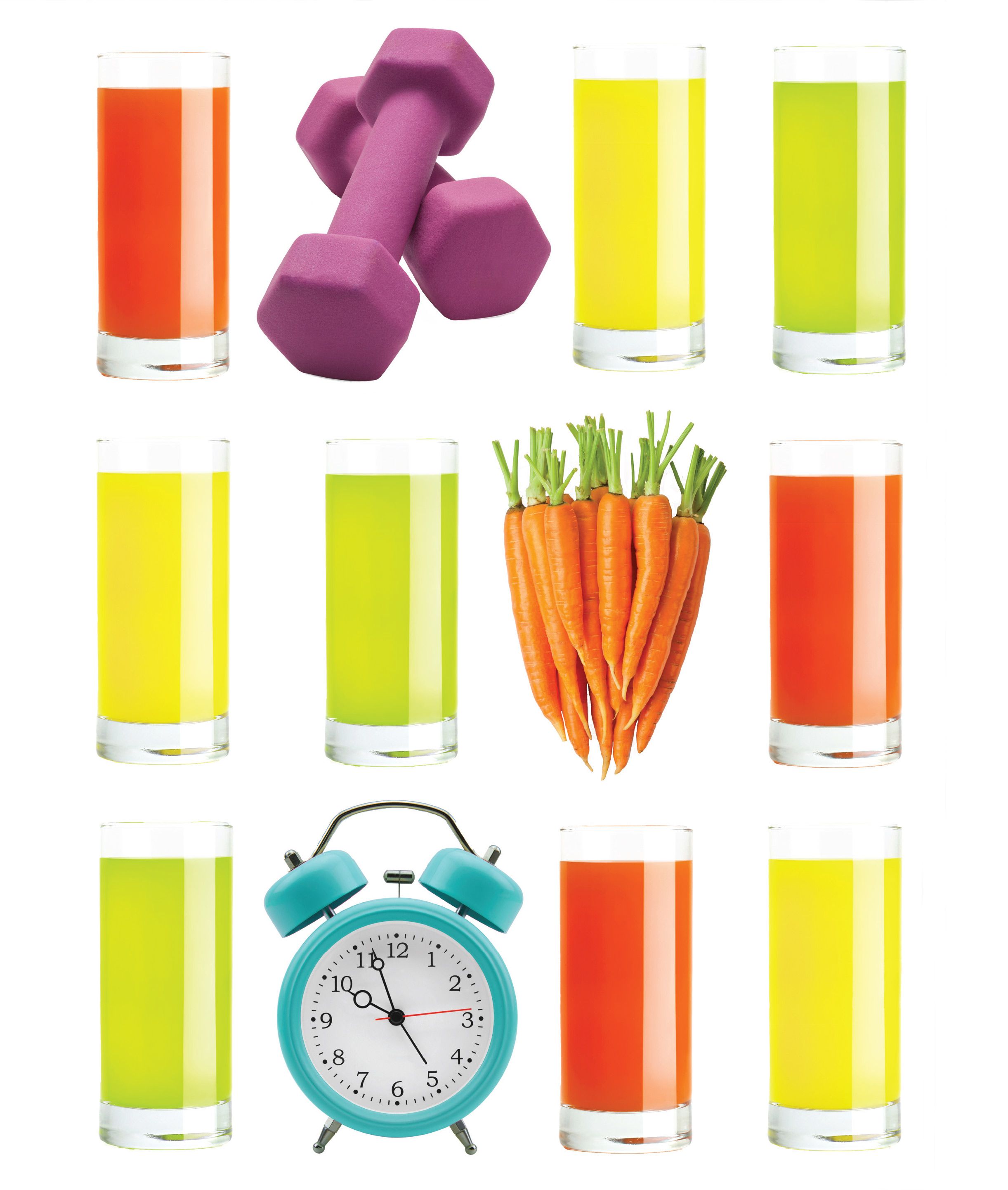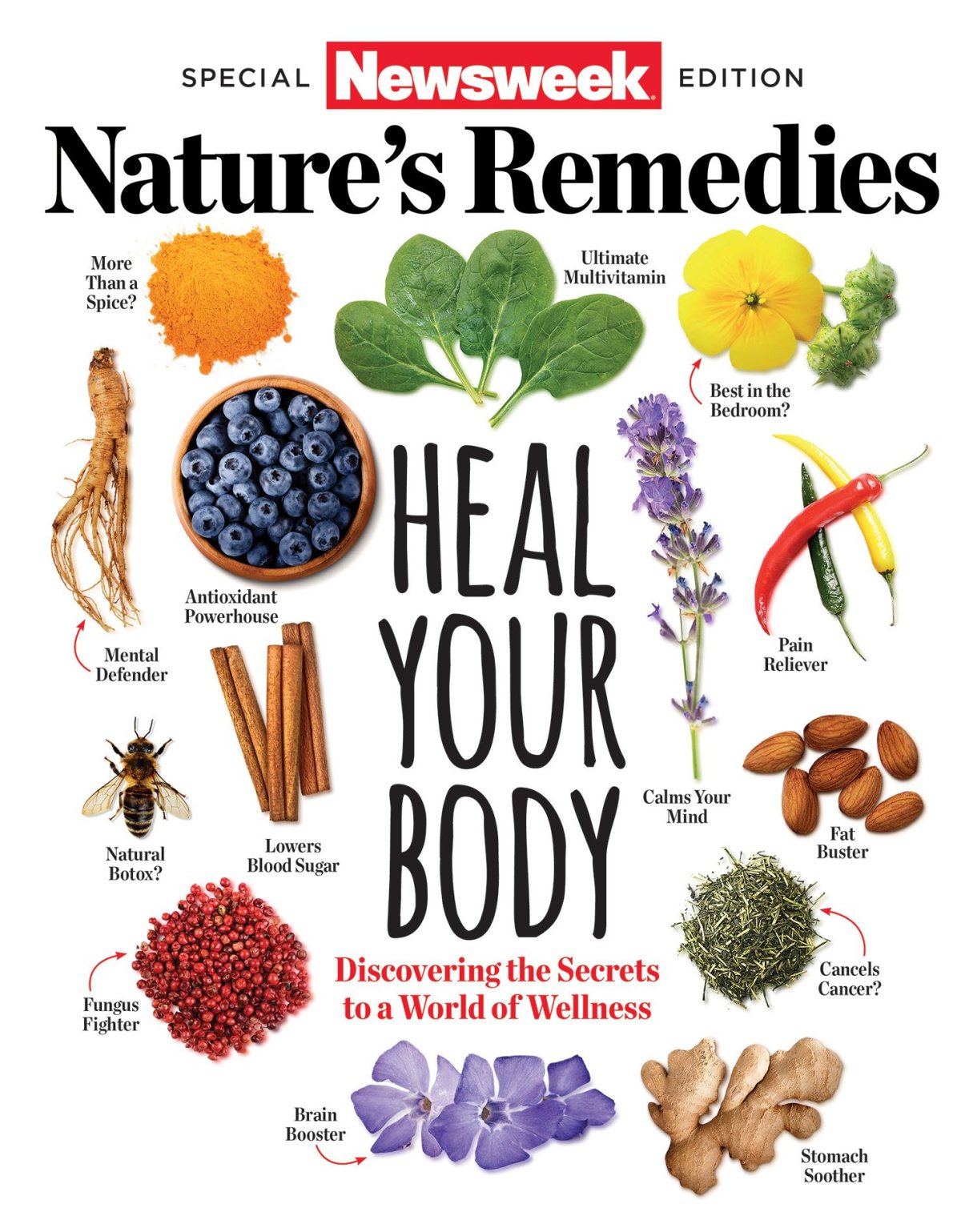
This article, and others on alternative, natural ways to increase your health, is found in Newsweek's Special Edition: Nature's Remedies—Heal Your Body.
Proponents of cleansing say that just by limiting your food and drink intake to a specified minimum, you can detoxify your body and achieve a number of general health goals from better mental acuity to more regular bowel movements and everything in between. But no matter how prevalent cleanses have become, no studies have been able to conclusively say that cleansing does in fact help your overall health. More importantly, cleansing can have a negative impact—by not eating all day, you can feel light-headed and nauseated. Certain cleanses forbid exercise, which seems counterintuitive to those who are hoping to achieve overall wellness.
Instead of opting for extreme methods that might offer shortterm results, focus on long-term solutions that can dramatically change your life—or at least your health—for the better.
Skip the Master Cleanse
One of the most popular cleanses, the Master Cleanse, requires ingesting nothing but a concoction of lemon juice, maple syrup, cayenne pepper and water for 10 days or more. If that doesn't sell you, know in advance that taking laxatives is also a vital part of losing those 10 pounds and "feeling great." The cleanse can cause dramatic weight-loss in the short term, but it's only a temporary victory. Those pounds you're losing aren't excess fat. They're just water weight. When you dramatically decrease how many calories you consume, your body uses its stores of glycogen, which live in your muscles and liver. Glycogen binds itself to water, so when your body loses its stores, the water is released and so is a percentage of your overall mass.
This immediate result is both the reason why the Master Cleanse became so popular and the reason it's so flawed. You'll gain all those pounds back once your cleanse is over and you start eating regular food again. A much more sustainable weight-loss program involves tracking your calorie intake (you can look up what your daily caloric intake should be with an app like MyFitnessPal) and burning more calories than you're taking in per day through exercise.
Instead of juicing, try eating fruits and vegetables
Juice cleanses, in which most nutrients are gained from liquified produce, were among the first to gain popularity among health-conscious Americans. On the surface, juicing can seem like a convenient and time-saving alternative to chopping up a fruit plate. But when squeezed into juice, fruits and vegetables are stripped of the fiber found in their whole form, a nutrient extremely important for your diet and part of the reason why fruit is so healthy. Your juice might have 15 kale leaves in it, but that roughage won't do you as much good in liquid form.
"From the standpoint of nutrient density and caloric provision, whole fruit is more nutrient dense," Dr. Kristi Crowe-White, an assistant professor in the University of Alabama's Department of Human Nutrition, told Outside magazine in 2013. A recent Harvard study showed whole fruits are also more effective at preventing type 2 diabetes than their liquefied counterparts.
Not only is juicing less effective than simply eating a balanced helping of fruits and veggies every day, it's also much less cost-effective. Five days' worth of juices from Juice Press costs $304.98. A high-end juicer can run you more than $100. Juicing is certainly better than skipping fruit altogether, but if you're looking to make a more permanent change, switch out junk food with a healthy snack like almonds or celery and hummus. You could also add fruits and veggies into foods that are already a part of your diet, like yogurt or pasta.
Skip cleansing; kick processed foods to the curb
There are several degrees of detoxing. It can be as simple as sticking to a pre-planned diet or as complex as the aforementioned Master Cleanse. Regardless of the method, the goal is to rid your body of toxins left behind by pollution, processed foods and alcohol. But the feeling proponents of cleansing mistake for a detox is actually the feeling of your digestive system going into shock. This can result in debilitating cramps, fatigue and, if you're a frequent cleanser, more serious stomach problems.
Luckily, your body is already very good at cleansing itself of unwanted junk. Chemicals don't just hang around your body—your colon, liver and kidneys help eliminate hard-to-digest food. Militant detox regimens actually get in the way of your body's natural systems for expelling junk. A study in the journal Obesity found that high-glycemic inputs like those found in most cleanses (especially the Master Cleanse, which involves sugary maple syrup) actually make fatty liver buildup more likely than less. But if you do want to make your body's job easier, decrease the amount of processed food—such as frozen meals—you eat and buy organic food instead. The fewer ingredients your choice has on its package, the better. But to ensure the habit sticks, slowly work organic food into your diet, rather than all at once, or your body will still crave the processed food it's used to. Start by making one meal from scratch a week and then build up from there.
Instead of juicing, stick to a routine.
You might think juicing is working because you're skipping through your office and feel like you can work for another four hours, but you're on your way to a major crash. "[It's a] Placebo effect," Dr. Elizabeth Applegate, a professor at University of California at Davis, told Slate. "Or ketosis. It's a survival mechanism. You're all amped up and alert because you need something to eat."
Living on a liquid diet won't do you any good, but establishing a regimented routine can. Your circadian rhythm— essentially your body's 24-hour internal clock—affects when you feel tired during the day. If you go to bed at midnight one night and 10 p.m. the next, your circadian rhythm doesn't always adjust. This might cause you to lie awake for hours, unable to sleep. Your circadian rhythm is also impacted by when you eat. If you constantly change the times where you fuel up, you'll be hungry at inconvenient times or not hungry when you should be chowing down. You can fix all of this by by waking up, eating and sleeping around the same times each day, which means you can anticipate when you'll need to go on a coffee run, have a nutritious snack or take a 15-minute walk outside to increase your energy.
This article was excerpted from Newsweek's Special Edition: Nature's Remedies—Heal Your Body. For more on the definitive guide to alternative methods of healing the mind, body and soul, pick up a copy today.

Uncommon Knowledge
Newsweek is committed to challenging conventional wisdom and finding connections in the search for common ground.
Newsweek is committed to challenging conventional wisdom and finding connections in the search for common ground.
About the writer
To read how Newsweek uses AI as a newsroom tool, Click here.








